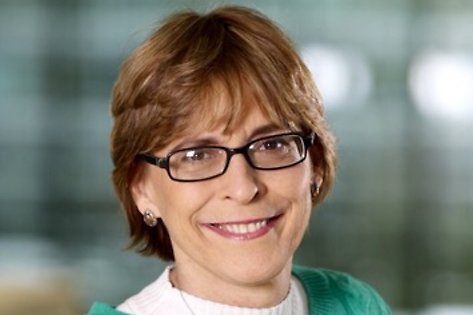WHO Assistant-Director General to deliver keynote address at the Care for Cancer Summit
Dr Mariângela Simão, Assistant Director-General for Medicines Access,Vaccines and Pharmaceuticals at the World Health Organization (WHO) will deliver a keynote address at Uppsala Health Summit in June. We caught up with Dr. Simão to ask for her perspective on the big questions around cancer care that the world is currently grappling with.

Dr Mariângela Simão, Assistant Director-General for Medicines Access,Vaccines and Pharmaceuticals at the World Health Organization (WHO)
Dr. Simão, you previously served as Director of Rights, Gender, Prevention and Community Mobilization at UNAIDS and prior to that you spent 30 years in the Brazilian public health system where you, inter alia, led successful price negotiations with pharmaceutical companies to lower the price of HIV medication. In your view; how can lessons from HIV/AIDS be applied to the global cancer epidemic?
“We learnt a lot from the HIV response, especially from the demand creation that resulted from civil society actions. HIV as you know is very “democratic” virus, it can potentially affect anyone regardless of social strata. It first became known in developed countries because it initially striked middle and upper classes, and among groups in society who had the intellectual power to put pressure on policy makers to make treatment available. And activism pushed for new ways of working with the health sector - the mantra; “nothing for us, without us” – inclusion of civil society in decision making bodies is a good example. This movement led to access to treatment being more linked to the right to health. Concretely, the HIV epidemic influenced the adoption of the flexibilities in the TRIPS* agreement and the DOHA declaration on TRIPS and Public Health", says Dr Mariângela Simão, WHO.
Low income countries carry the largest burden of cervical cancers globally, yet the basic tools for effective cervical cancer screening in low-resource settings already exist and are relatively inexpensive to implement. What needs to happen for these lifesaving approaches to become within reach for the millions of women at risk of pre-mature death from cervical cancer?
Cervical cancer can be eliminated. Nobody should die of cervical cancer, it is not a fast-growing cancer. It takes a long time to develop so the health system should be able to address the different phases. We should be able to increase HPV vaccination for young girls, screen women at risk because pap-smear and other diagnostics can be done at the primary health-care level. Then we should be able to treat patients, either following an early or late diagnosis", says Mariângela Simão.
Unfortunately, cervical cancer management is an area where we have huge gaps in the world with respect to access to prevention diagnostics and treatment. WHO is assisting countries to make the right decisions on models of treatment and care based on their capacity. Again, there are cost-effective ways to prevent and treat cervical cancer", she continues.
Despite billions of public and private dollars invested in pharmaceutical research and development, urgent needs for drugs continue to go unmet. Responding to concerns raised by patients and health advocates worldwide, in 2015 United Nations Secretary General Ban Ki-Moon convened a High-Level Panel on Access to Medicines to review and recommend solutions for increasing access to medicines.
The report that followed called for new business models and increased transparency during drug development processes. In your view, is there any light in the tunnel?
Yes, I have worked in the field of access to medicine for a long time and I see now that there is a gradual change in the global balance of forces. For years, only the upper middle income countries tried to fight the battles of drug prices and had to do it alone. Now, and especially with the new drugs coming out on the market, you also have the upper income countries coming into to the playing field, especially those with constitutional obligations to provide health care. So the fact that they are also finding it impossible to pay high prices for the newer medicines has created a global movement and new opportunities to work towards solutions together. So fair pricing and affordability has become a global problem", says Dr Simão.
At this year´s World Health Assembly, it is expected that Member States will ask WHO to develop an Access to medicine and vaccines roadmap, that will help to guide policy and legal frameworks and to address issues like availability, procurement and pricing. It important that this roadmap also encourages innovation. Access has to go hand in hand with innovation. Ultimately we need more consensus on what can be considered fair pricing in different settings and what constitutes a sustainable return on investment for the drug developers. Now is a good time to have this conversation!", Dr Mariângela Simão continues.
Thank you, Dr Simão! We look forward to hearing more at Uppsala Health Summit in June!
Fact Box
* The Agreement on Trade-Related Aspects of Intellectual Property Rights (TRIPS)
